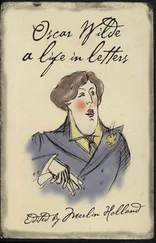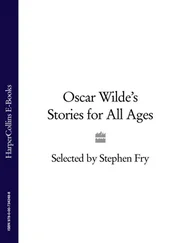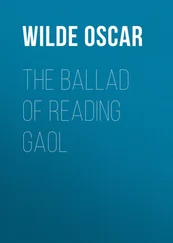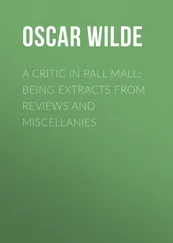Oscar Wilde - Reviews
Здесь есть возможность читать онлайн «Oscar Wilde - Reviews» — ознакомительный отрывок электронной книги совершенно бесплатно, а после прочтения отрывка купить полную версию. В некоторых случаях можно слушать аудио, скачать через торрент в формате fb2 и присутствует краткое содержание. Жанр: foreign_home, literature_19, cinema_theatre, foreign_prose, на английском языке. Описание произведения, (предисловие) а так же отзывы посетителей доступны на портале библиотеки ЛибКат.
- Название:Reviews
- Автор:
- Жанр:
- Год:неизвестен
- ISBN:нет данных
- Рейтинг книги:3 / 5. Голосов: 1
-
Избранное:Добавить в избранное
- Отзывы:
-
Ваша оценка:
- 60
- 1
- 2
- 3
- 4
- 5
Reviews: краткое содержание, описание и аннотация
Предлагаем к чтению аннотацию, описание, краткое содержание или предисловие (зависит от того, что написал сам автор книги «Reviews»). Если вы не нашли необходимую информацию о книге — напишите в комментариях, мы постараемся отыскать её.
Reviews — читать онлайн ознакомительный отрывок
Ниже представлен текст книги, разбитый по страницам. Система сохранения места последней прочитанной страницы, позволяет с удобством читать онлайн бесплатно книгу «Reviews», без необходимости каждый раз заново искать на чём Вы остановились. Поставьте закладку, и сможете в любой момент перейти на страницу, на которой закончили чтение.
Интервал:
Закладка:
It is an exaggerated psychological study of a modern woman, a sort of picture by limelight, full of coarse colours and violent contrasts, not by any means devoid of cleverness but essentially false and over-emphasised. The heroine, Helen Rohan by name, tells her own story and, as she takes three volumes to do it in, we weary of the one point of view. Life to be intelligible should be approached from many sides, and valuable though the permanent ego may be in philosophy, the permanent ego in fiction soon becomes a bore. There are, however, some interesting scenes in the novel, and a good portrait of the Young Pretender, for though the heroine is absolutely a creation of the nineteenth century, the background of the story is historical and deals with the Rebellion of ’45. As for the style, it is often original and picturesque; here and there are strong individual touches and brilliant passages; but there is also a good deal of pretence and a good deal of carelessness.
What can be said, for instance, about such expressions as these, taken at random from the second volume, – ‘evanishing,’ ‘solitary loneness,’ ‘in my then mood,’ ‘the bees might advantage by to-day,’ ‘I would not listen reverently as did the other some who went,’ ‘entangling myself in the net of this retiari ,’ and why should Bassanio’s beautiful speech in the trial scene be deliberately attributed to Shylock? On the whole, A Statesman’s Love cannot be said to be an artistic success; but still it shows promise and, some day, the author who, to judge by the style, is probably a woman, may do good work. This, however, will require pruning, prudence and patience. We shall see.
(1) The Master of the Ceremonies . By G. Manville Fenn. (Ward and Downey.)
(2) A Statesman’s Love . By Emile Bauche. (Blackwood and Co.)
BEN JONSON
( Pall Mall Gazette , September 20, 1886.)
In selecting Mr. John Addington Symonds to write the life of Ben Jonson for his series of ‘English Worthies,’ Mr. Lang, no doubt, exercised a wise judgment. Mr. Symonds, like the author of Volpone , is a scholar and a man of letters; his book on Shakspeare’s Predecessors showed a marvellous knowledge of the Elizabethan period, and he is a recognised authority on the Italian Renaissance. The last is not the least of his qualifications. Without a full appreciation of the meaning of the Humanistic movement it is impossible to understand the great struggle between the Classical form and the Romantic spirit which is the chief critical characteristic of the golden age of the English drama, an age when Shakespeare found his chief adversary, not among his contemporaries, but in Seneca, and when Jonson armed himself with Aristotle to win the suffrages of a London audience. Mr. Symonds’ book, consequently, will be opened with interest. It does not, of course, contain much that is new about Jonson’s life. But the facts of Jonson’s life are already well known, and in books of this kind what is true is of more importance than what is new, appreciation more valuable than discovery. Scotchmen, however, will, no doubt, be interested to find that Mr. Symonds has succeeded in identifying Jonson’s crest with that of the Johnstones of Annandale, and the story of the way the literary Titan escaped from hanging, by proving that he could read, is graphically told.
On the whole, we have a vivid picture of the man as he lived. Where picturesqueness is required, Mr. Symonds is always good. The usual comparison with Dr. Johnson is, of course, brought out. Few of ‘Rare Ben’s’ biographers spare us that, and the point is possibly a natural one to make. But when Mr. Symonds calls upon us to notice that both men made a journey to Scotland, and that ‘each found in a Scotchman his biographer,’ the parallel loses all value. There is an M in Monmouth and an M in Macedon, and Drummond of Hawthornden and Boswell of Auchinleck were both born the other side of the Tweed; but from such analogies nothing is to be learned. There is no surer way of destroying a similarity than to strain it.
As for Mr. Symonds’ estimate of Jonson’s genius, it is in many points quite excellent. He ranks him with the giants rather than with the gods, with those who compel our admiration by their untiring energy and huge strength of intellectual muscle, not with those ‘who share the divine gifts of creative imagination and inevitable instinct.’ Here he is right. Pelion more than Parnassus was Jonson’s home. His art has too much effort about it, too much definite intention. His style lacks the charm of chance. Mr. Symonds is right also in the stress he lays on the extraordinary combination in Jonson’s work of the most concentrated realism with encyclopædic erudition. In Jonson’s comedies London slang and learned scholarship go hand in hand. Literature was as living a thing to him as life itself. He used his classical lore not merely to give form to his verse, but to give flesh and blood to the persons of his plays. He could build up a breathing creature out of quotations. He made the poets of Greece and Rome terribly modern, and introduced them to the oddest company. His very culture is an element in his coarseness. There are moments when one is tempted to liken him to a beast that has fed off books.
We cannot, however, agree with Mr. Symonds when he says that Jonson ‘rarely touched more than the outside of character,’ that his men and women are ‘the incarnations of abstract properties rather than living human beings,’ that they are in fact mere ‘masqueraders and mechanical puppets.’ Eloquence is a beautiful thing but rhetoric ruins many a critic, and Mr. Symonds is essentially rhetorical. When, for instance, he tells us that ‘Jonson made masks,’ while ‘Dekker and Heywood created souls,’ we feel that he is asking us to accept a crude judgment for the sake of a smart antithesis. It is, of course, true that we do not find in Jonson the same growth of character that we find in Shakespeare, and we may admit that most of the characters in Jonson’s plays are, so to speak, ready-made. But a ready-made character is not necessarily either mechanical or wooden, two epithets Mr. Symonds uses constantly in his criticism.
We cannot tell, and Shakespeare himself does not tell us, why Iago is evil, why Regan and Goneril have hard hearts, or why Sir Andrew Aguecheek is a fool. It is sufficient that they are what they are, and that nature gives warrant for their existence. If a character in a play is lifelike, if we recognise it as true to nature, we have no right to insist on the author explaining its genesis to us. We must accept it as it is: and in the hands of a good dramatist mere presentation can take the place of analysis, and indeed is often a more dramatic method, because a more direct one. And Jonson’s characters are true to nature. They are in no sense abstractions; they are types. Captain Bobadil and Captain Tucca, Sir John Daw and Sir Amorous La Foole, Volpone and Mosca, Subtle and Sir Epicure Mammon, Mrs. Purecraft and the Rabbi Busy are all creatures of flesh and blood, none the less lifelike because they are labelled. In this point Mr. Symonds seems to us unjust towards Jonson.
We think, also, that a special chapter might have been devoted to Jonson as a literary critic. The creative activity of the English Renaissance is so great that its achievements in the sphere of criticism are often overlooked by the student. Then, for the first time, was language treated as an art. The laws of expression and composition were investigated and formularised. The importance of words was recognised. Romanticism, Realism and Classicism fought their first battles. The dramatists are full of literary and art criticisms, and amused the public with slashing articles on one another in the form of plays.
Читать дальшеИнтервал:
Закладка:
Похожие книги на «Reviews»
Представляем Вашему вниманию похожие книги на «Reviews» списком для выбора. Мы отобрали схожую по названию и смыслу литературу в надежде предоставить читателям больше вариантов отыскать новые, интересные, ещё непрочитанные произведения.
Обсуждение, отзывы о книге «Reviews» и просто собственные мнения читателей. Оставьте ваши комментарии, напишите, что Вы думаете о произведении, его смысле или главных героях. Укажите что конкретно понравилось, а что нет, и почему Вы так считаете.












